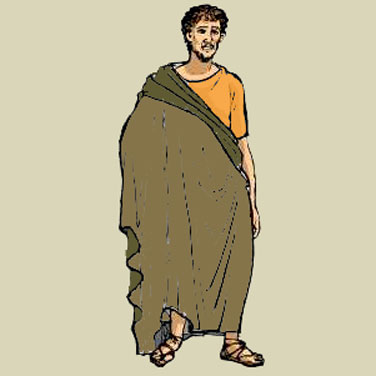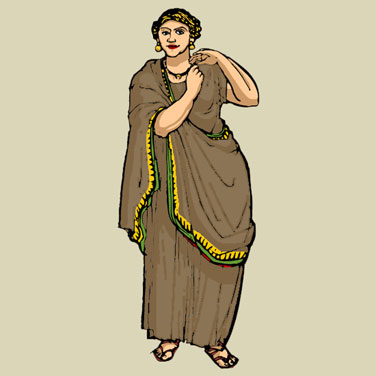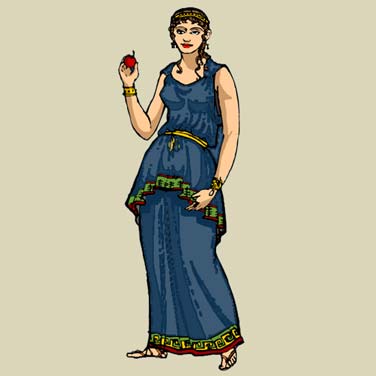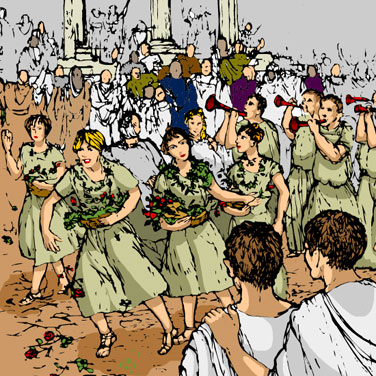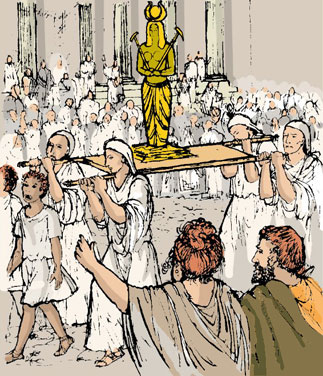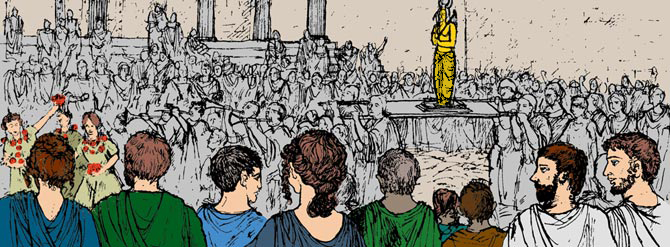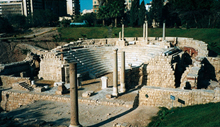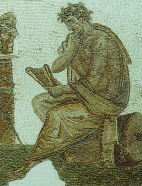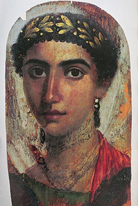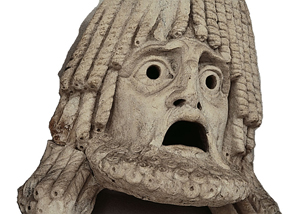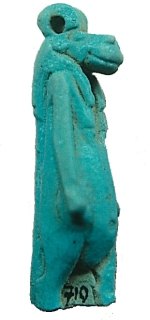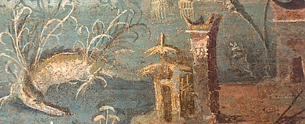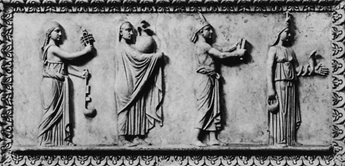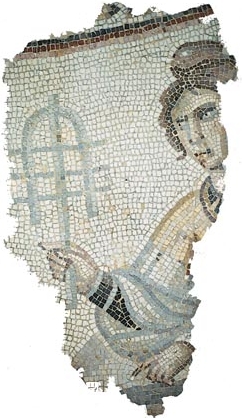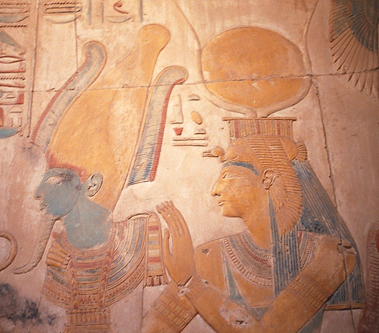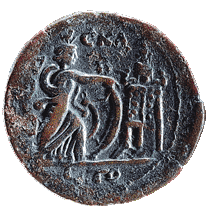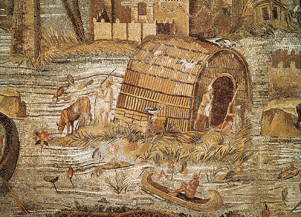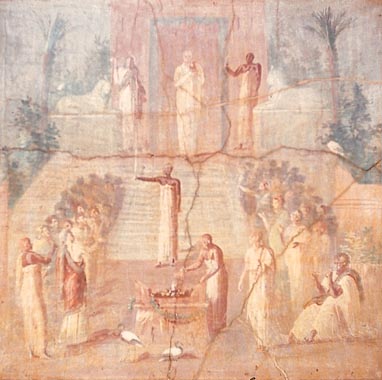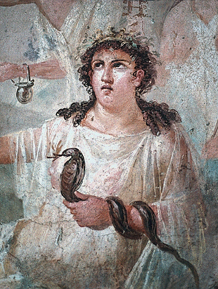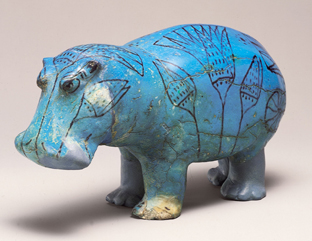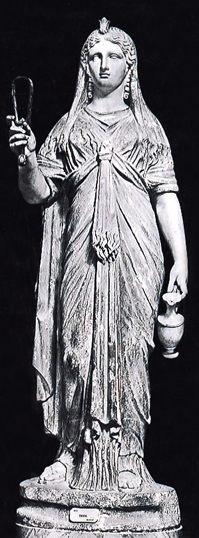sacerdōtēs, ubi ad portum pervēnērunt, effigiem deae Īsidis
dēposuērunt. in portū stābat nāvis, quae ōrnātissima erat. tōta
puppis erat aurāta. corōna rosārum dē mālō nāvis pendēbat. nūllī
tamen nautae in nāve erant.
sacerdōtēs cum effigiē deae ad hanc nāvem prōcessērunt.5
deinde pontifex ipse deae Īsidī precēs adhibēbat. cīvēs
sacerdōtēsque rosās in nāvem et in mare iēcērunt. tum nautae
rudentēs solvere coepērunt. ventus secundus nāvem in altum lentē
impellēbat. spectātōrēs iterum iterumque plaudēbant. clāmor
spectātōrum precēsque sacerdōtum aurēs nostrās implēbant.
10
“nunc nāvis solūta est; nunc mare placidum. dea Īsis nōbīs
favet. dea cīvibus Alexandrīnīs favet.”
sacerdōtēs, postquam nāvem sacram ita ēmīsērunt, effigiem
deae ad templum reportāvērunt. cīvēs per viās urbis laetī
currēbant.
15
ad vīllam Aristōnis lentē reveniēbāmus. Helena cum illīs
iuvenibus ambulābat, quōs Galatēa ē locō ēmōverat. hoc tamen
Galatēa nōn sēnsit, quod assiduē marītum castīgābat:
“in hāc urbe diūtius manēre nōlō. tū nihil facis, nihil cūrās.
servum nōn ēmīsistī, quamquam tē saepe monēbam. ēheu! cīvēs
20
Alexandrīnī sunt bēstiae. fīliam nostram vexābant illī iuvenēs.
Helena ērubēscēbat; paene lacrimābat. cūr eam numquam servās?
mihi semper necesse est fīliam nostram cūrāre.”
“ubi est Helena?” rogāvit Aristō.
“nōnne tēcum ambulābat?” respondit Galatēa. “ēheu! illī25
iuvenēs columbam meam iterum agitant.”
“stultissima es, uxor!” respondit ille. “columba iuvenēs agitat,
nōn iuvenēs columbam.”

